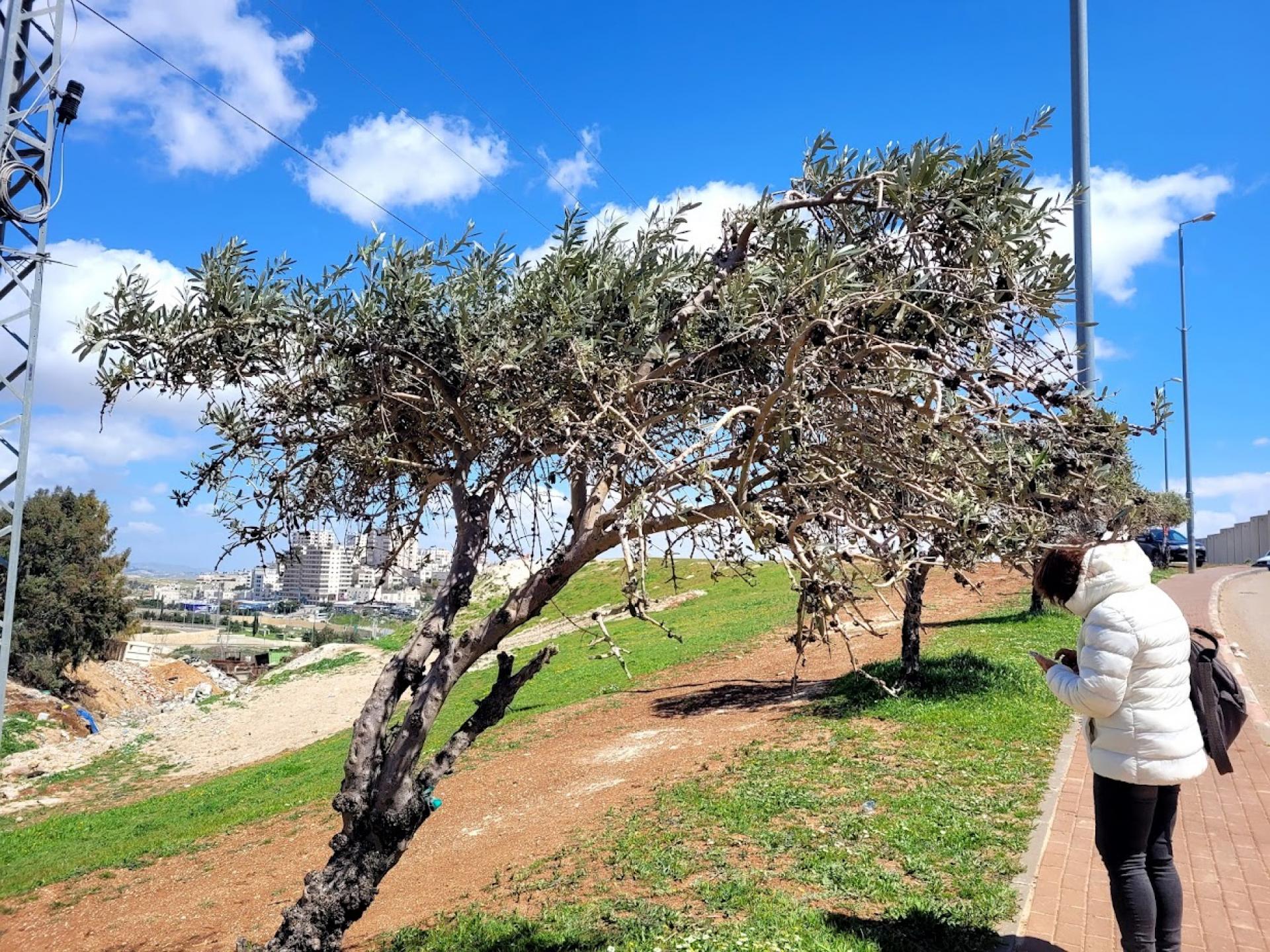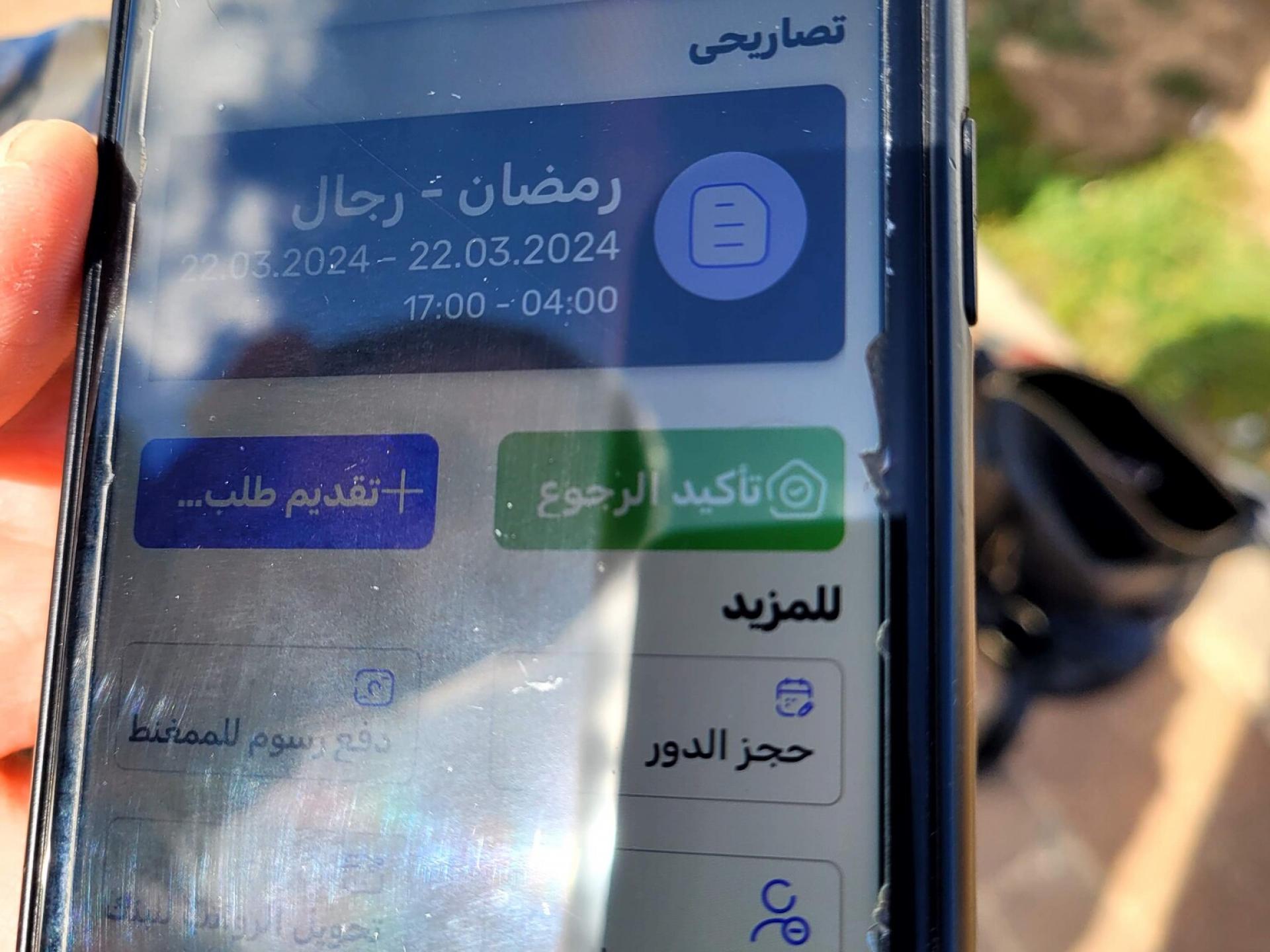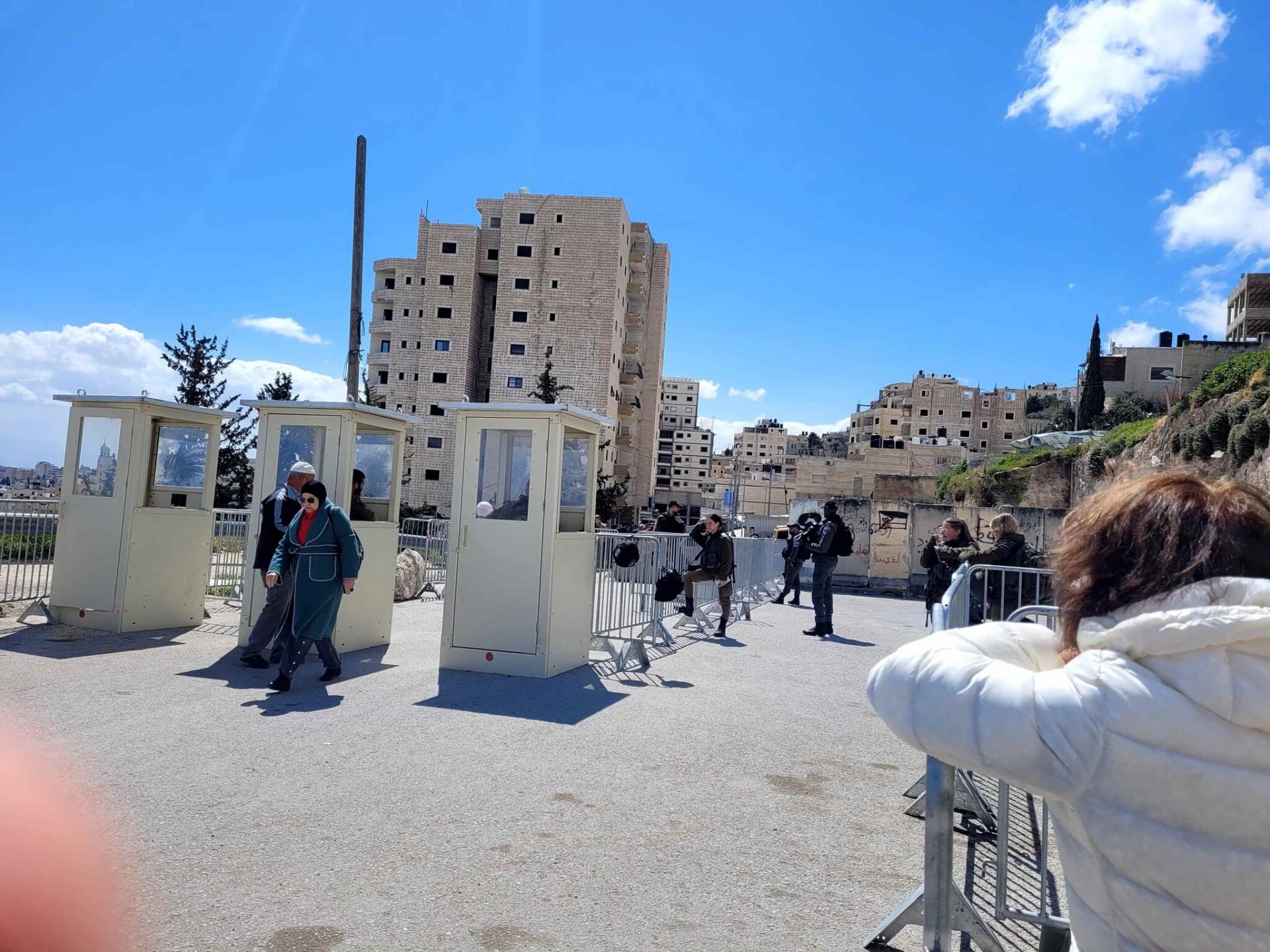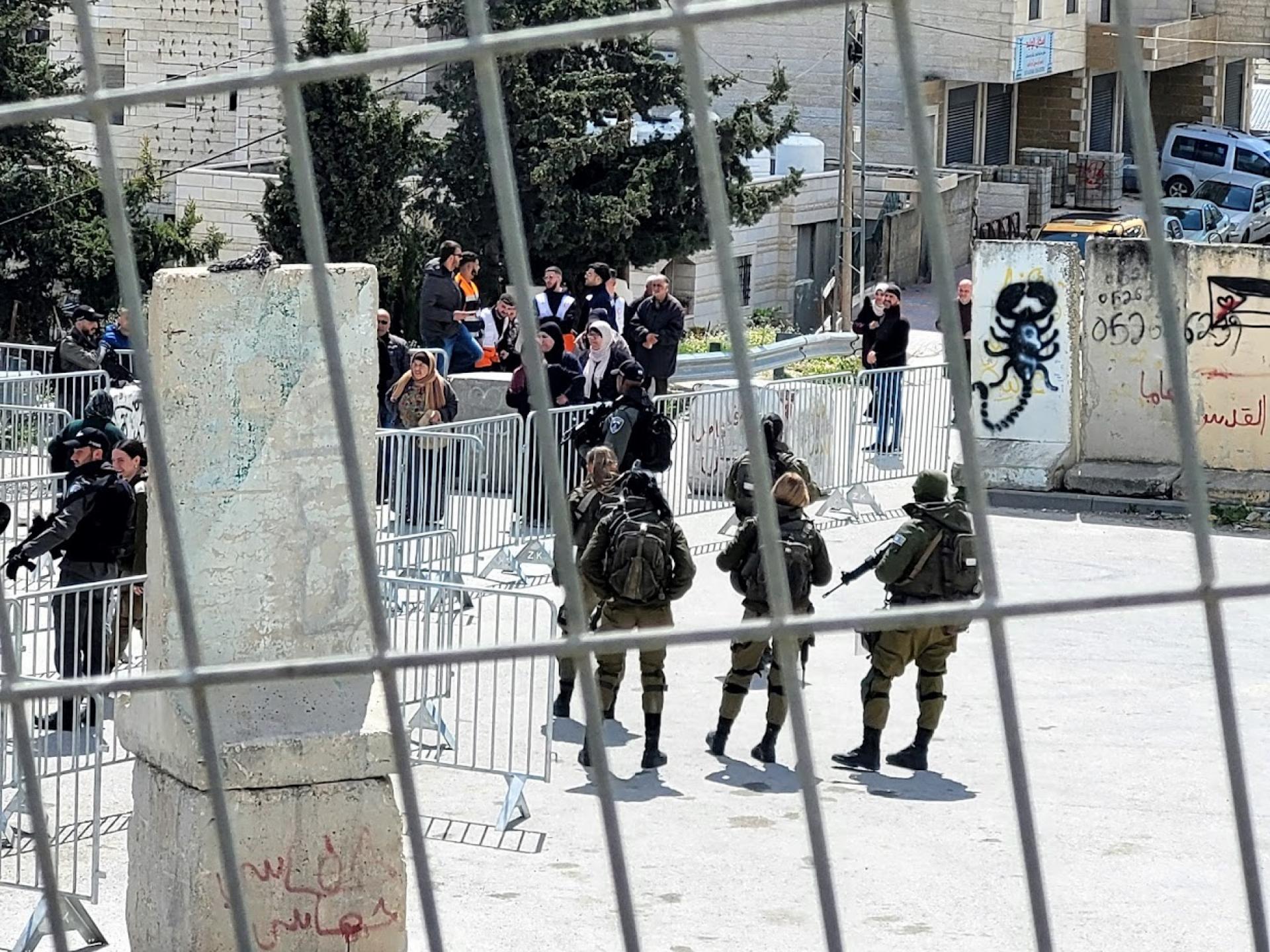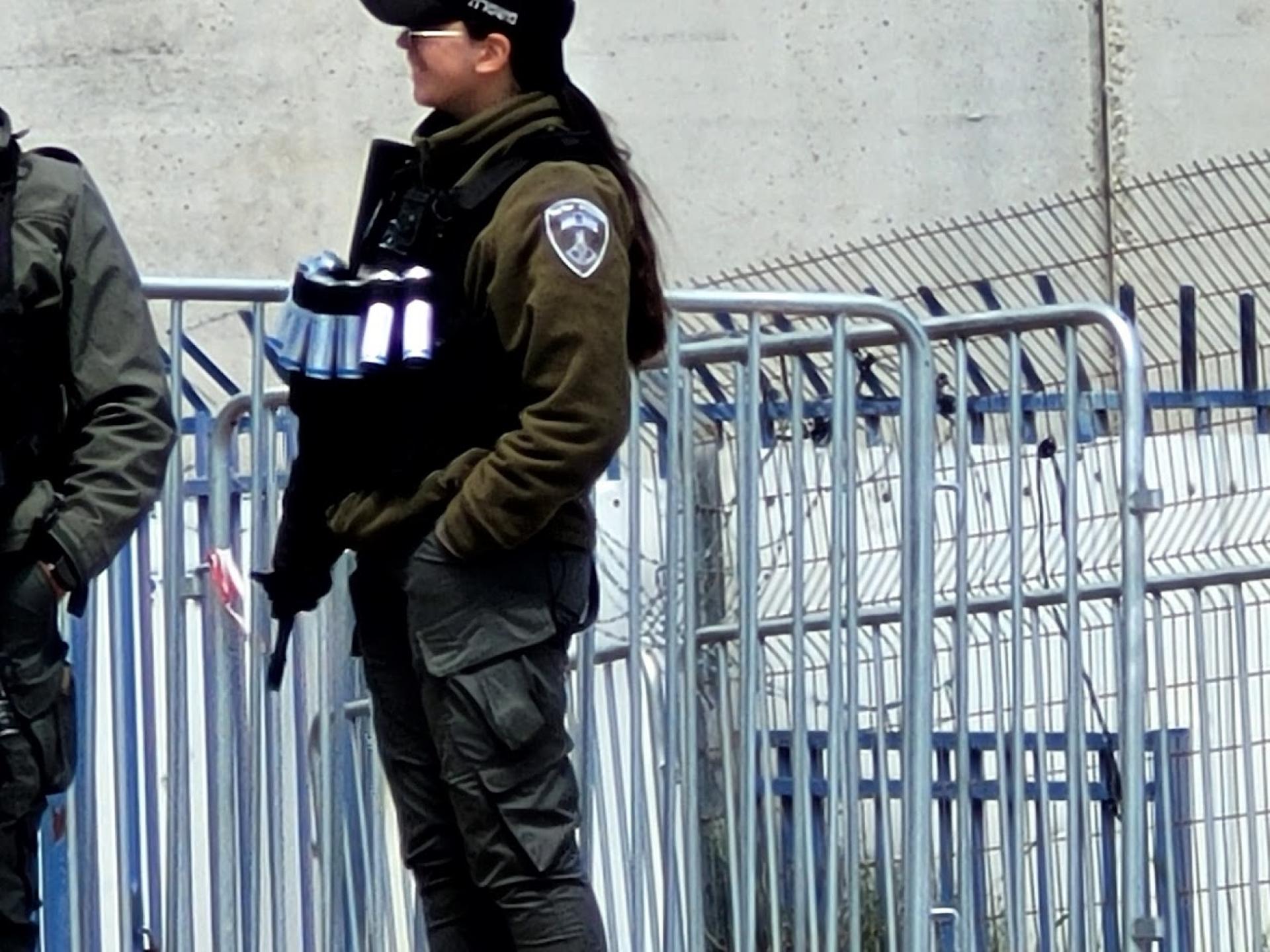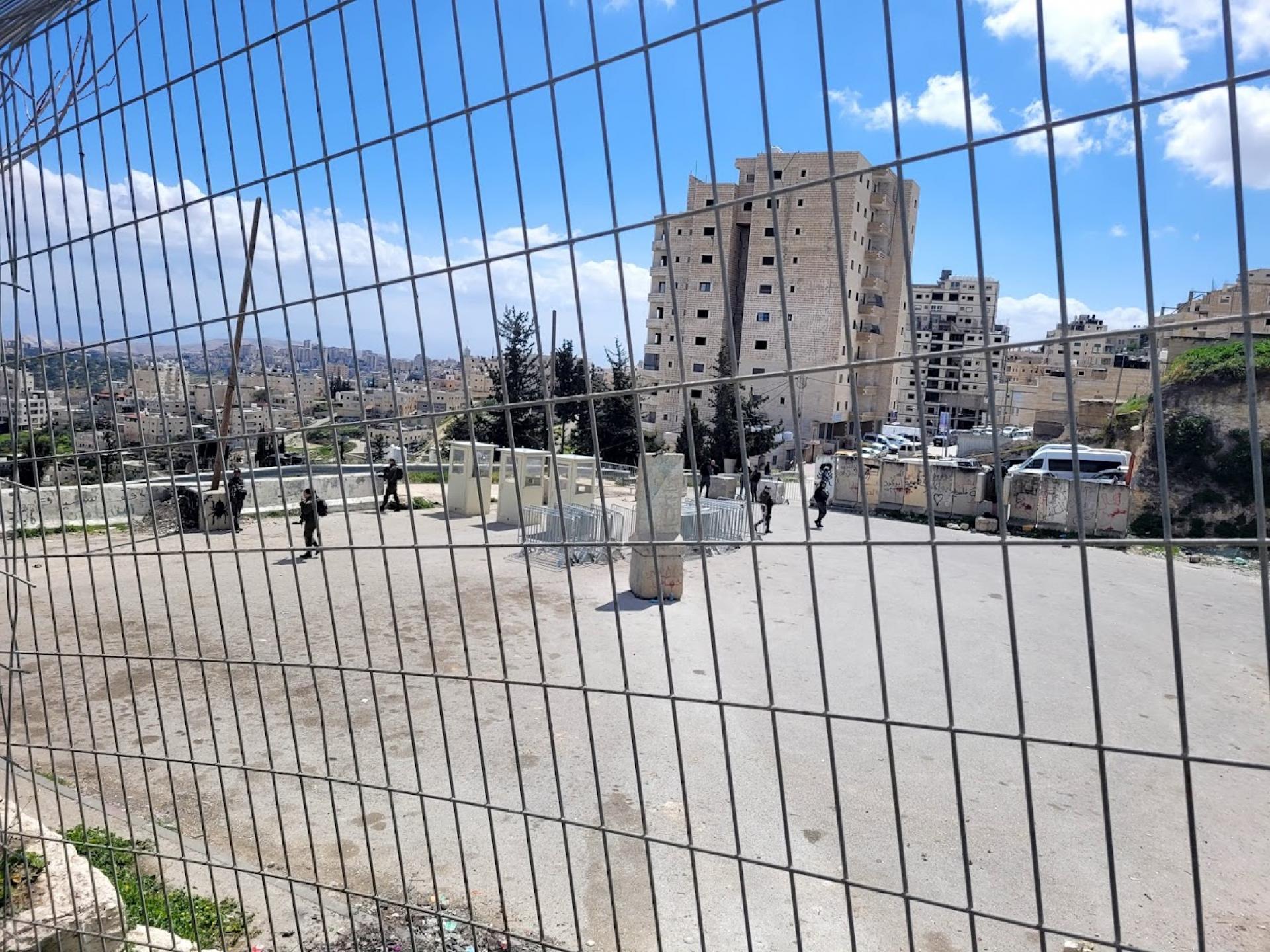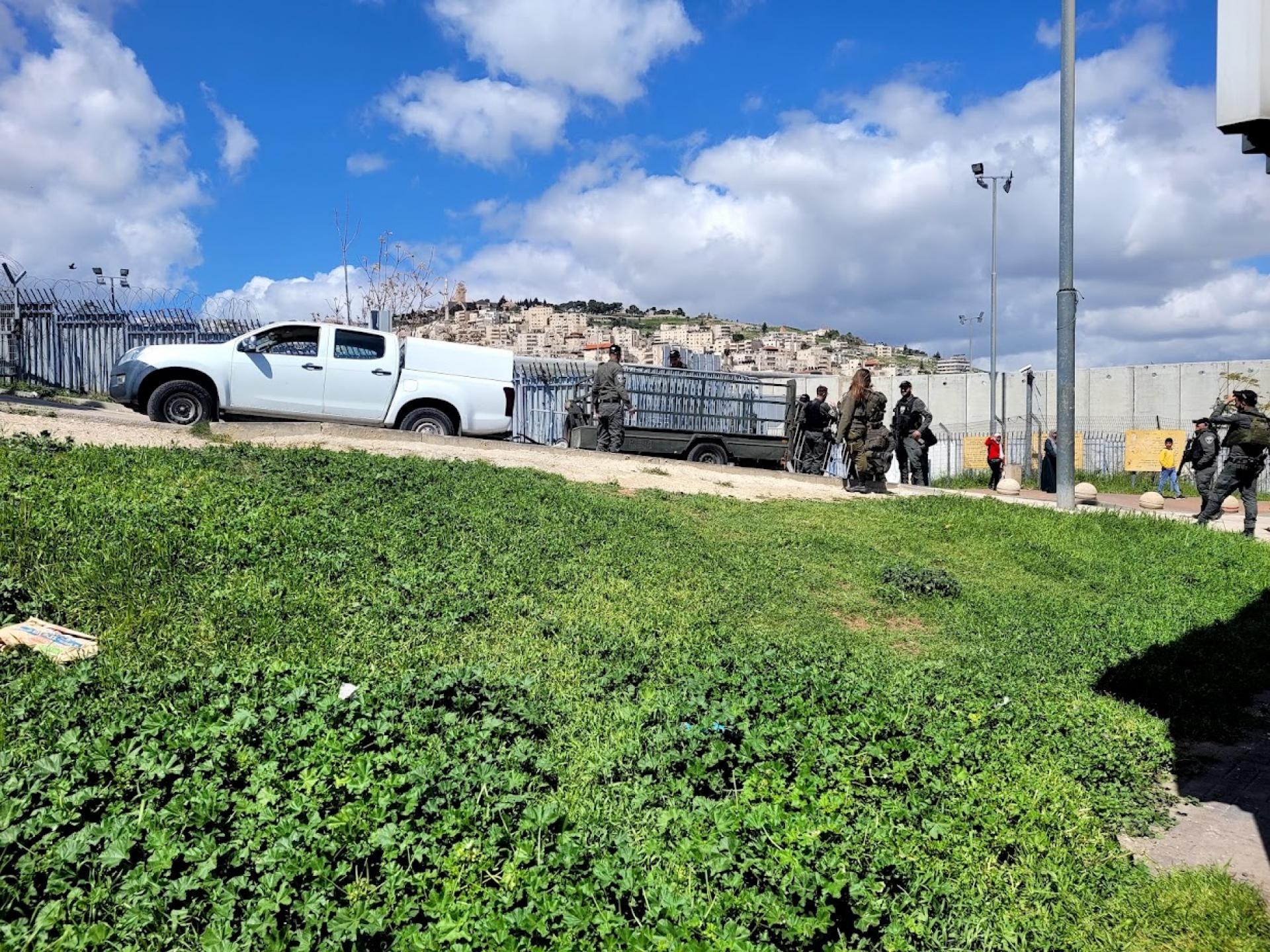Olive Checkpoint: Second Friday of Ramadan
About 500 Palestinian men and women passed through the Olive checkpoint for prayers at Al Aqsa from 6 am until closing at 11:00 (reference at the end of the report). We saw only a few children. Not many women either. The mood was one of dejection and despair, and no festive clothes were worn. We counted dozens of soldiers from all the surrounding units with many weapons brandished and often drawn, and one coordination and liaison officer, who, unlike before, received instructions from the border guards and not the other way around.
We saw the application for Ramadan permits on the mobile of a person we met, and it includes a return signature at 17:00 from the same checkpoint. The soldiers were more hostile towards us than ever. From a passing comment by a senior officer who arrived after the checkpoint was closed, we concluded that the number of permits for West Bank Palestinians was only about 15,000 (while the government had announced criteria that allowed much larger audiences). We wondered as to the reasons.
10:00 - Many empty buses are parked up at the checkpoint's parking lot. Unlike previous years, there are no policemen blocking the ascending road with their car. We had two encounters on our way from the parking lot. Two adults aged sixty or older, who confess that this is the first time they have arrived in Jerusalem since October 7th, as a nearly complete closure was imposed then on the Palestinians living in the territories and the Olive checkpoint was closed.
was imposed then on the Palestinians living in the territories and the Olive checkpoint was closed.
- One - the owner of a mini market on Hatsorfim Street in Old Jerusalem, a pleasant man and a fluent Hebrew speaker. He was born in the Old City, but his father was outside the city during the 1967 war, so he and the whole family received Palestinian identity cards and live in Azaria. He has a permanent merchant pass, but has closed shop since the war broke out. According to him, only two of all the shops on this central street are still open, and there are no tourists anyway. He shows us the Civil Administration’s App for Ramadan permits on his mobile.
No more paper permits. A magnetic card is required, you must return from the same checkpoint you entered, and the stay is limited from morning to five in the evening. It is impossible to stay for the evening prayer and certainly not to go around the night festivities at Damascus Gate. The magnetic card must be stamped at the entrance and exit, the data is recorded, and those who do not stamp again by 5:00 PM, lose their general transit license.
Coming back is also not easy, the shuttles do not come back to the Olive checkpoint, so you have to change buses and pay money. His wife has a blue certificate, but decided not to come this year because there is no festive feeling in the old city, most of the shops are closed and the streets are empty.
- The second fellow - also a resident of Azaria - was standing by the checkpoint’s exit, waiting for a fellow traveler. His wife does not have a magnetic card and did not want to start the tedious process. It’s useless to even think about going out as a family as the situation is dangerous and unsuitable for children.
We moved to the Palestinian side, and immediately saw that the long marching paths from the first checkpoints were empty. At the exit from the parking lot on the Palestinian side, two positions are manned, and there is no separation between men and women. But this is not a problem - because people just don't come!
The soldiers, however, were there in abundance. Most of them are the border guards and the crossing unit, among them also quite a few well-equipped female soldiers proud of their combat status.
- Many weapons are brandished or sometimes drawn, and there is also a female police officer unlike before, who was completely subordinate to the decisions of the controlling male border guard.
- The attitude towards us is very hostile, ranging from comments about how much money we make as we stand, watch and disturb, to a crooked assertion that we’re endangering them, because when they attend to us while turning their backs to the positions and a possible attack. The conclusion is, we are harming the dangerous operational mission, and we must not stand close to the transit and inspection area, just go up to watch. There, in the area of the stand, there are three more dense groups of soldiers and women, the Yamam and the border police, in a loose formation of inaction…
- We were happy to see that the restrooms are renovated and cleaner than ever! There's nothing like a long shutdown and minimal permits for prayers to improve their situation.
- At a quarter past 11, the mobile barriers began to be loaded in preparation for the closing of the checkpoint. At 11 it was all over.
Just then, a group of senior commanders from all the many units surrounding Jerusalem arrived to review the situation. It seemed that in their honor a few more were allowed to pass at the last minute, to demonstrate the success of the operation. We received a logical explanation for the super-early closing - because of the winter clock, the prayer starts at 12:15 and there is no way that those who want to pass after 11 will arrive for the prayer on time... and we also discovered, by the way, that permits were only issued to about 15,000 Palestinians from the territories. According to the commander’s version, the reason is that it is the number of Palestinians who were registered.
And we ask - does it make sense that out of at least a million and more Palestinian men and women in the West Bank who were allowed to come to prayer, only 12,000 would register to reach the coveted occasion at Al Aqsa? Is it caused by fear of getting in trouble and the atmosphere of gloom prevailing on the Palestinian street this Ramadan, or did the administration and the security services also activate an additional bureaucratic filter that was not announced to reach the desired number of 15,000?
We received the disturbing number of only 500 passes from 6 in the morning until closing at 11 from the shuttle conductors at the exit of the checkpoint.

